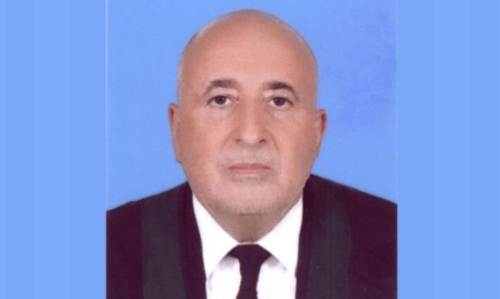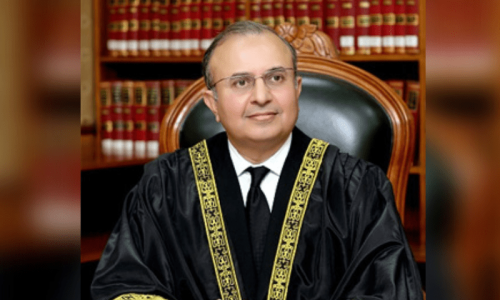ISLAMABAD: The Supreme Court on Wednesday summoned the secretary of the Balochistan communication and works department after rejecting the department’s report justifying chopping of trees for extending a link road.
A bench comprising Justice Sheikh Azmat Saeed and Justice Qazi Faez Isa had taken up a case relating to the cutting of trees in Pishin district on an application in which a citizen had expressed apprehensions that the project would uproot over 2,200 trees for the extension of 10km Pishin-Yaroo Link Road.
The applicant had also highlighted that the trees could be saved by earmarking an alternative route but none of the departments working on the project had shown any interest in conserving the trees or the local habitat.
After rejecting the communication and works department’s report, the court ordered the Balochistan government to come up with a fresh report within a fortnight. The court clarified that it had not barred the government from carrying out the project but only wanted to see conservation of the trees.
Applicant fears link road extension will uproot over 2,200 trees
In his report, the secretary of the communication and works department had acknowledged that the Balochistan government had constituted a committee which visited the site and proposed an alternative plan by acquiring land on the right side of the existing row of trees for the construction of a dual carriageway.
Consequently, the department estimated a cost of approximately Rs1.1 billion for the alternative plan to be utilised for acquiring land, shifting of existing gas pipelines and electricity poles, etc.
But the Balochistan government did not approve the proposed project due to cost escalation and concluded that the work was required to be carried out according to the earlier plan approved by the Provincial Working Development Party (PDWP) coupled with proposals of planting 5,150 new trees which would cost additional Rs25 million to be looked after by the forest department for the next five years.
Tracing the history of the scheme, the report explained that the project for widening of the dual carriageway was approved in 2016 by the cabinet and the Balochistan Assembly for including in PSDP 2016-17.
After the survey of the site, the communication and works department recommended in PC-I cutting of 1,662 trees with plantation of 800 fresh saplings because uprooting of trees was necessary for the smooth flow of existing traffic.
The report explained that necessary funds needed for the plantation of fresh trees after uprooting the old trees under PC-I had already been allocated.
After the fulfilment of the codal formalities, the report said, open tenders were invited and the interesting contractors were invited. After the completion of the tender process, the work was awarded to the lowest bidder and subsequent work orders were issued.
The forest department also issued a no-objection certificate (NOC) later, the report said, adding that due to urgency of the project as well as lack of communication, the engineers as per approved PC-I uprooted 100 trees on assuming that the chief conservator officer had directed the district forest officer, Pishin, to issue the NOC, but the incumbent officer did not wait for the formal issuance of the NOC by the district forest officer.
When the suo motu action was initiated by the apex court, an FIR was lodged by the forest department against the executive engineer concerned who was later suspended though no departmental proceedings were initiated against him since the fate of the case has not been decided, the report explained.
Published in Dawn, April 12th, 2018












































Dear visitor, the comments section is undergoing an overhaul and will return soon.